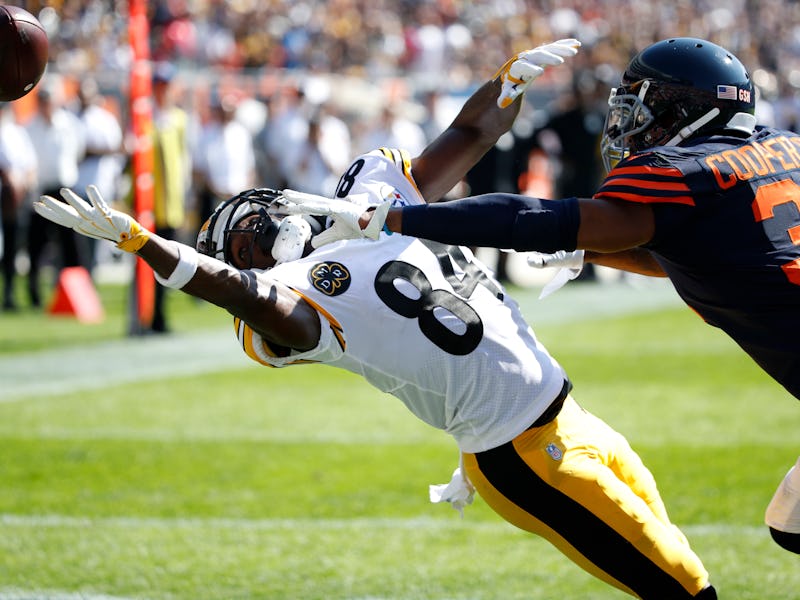Premature Sports Celebrations Are 'Mindless,' Says Psychologist

In front of tens of thousands of home fans on Sunday, Chicago Bears cornerback Marcus Cooper cost his team six points by indulging in arrogance. A few moments short of actually scoring a touchdown, he decided to celebrate early, slowing down to a walk just a few steps shy of the end zone. Before he knew it, he had lost the ball.
Cooper is incredibly lucky his team still pulled off the victory by beating the Pittsburgh Steelers in overtime, but he should still be embarrassed he made such a dumb error considering how many times it’s been repeated in professional sports.
Dr. Amy Baltzell, a clinical associate professor at Boston University, tells Inverse that Cooper and similarly boastful players sometimes can’t help it because they’re blinded by the anticipation of their upcoming success.
“You become mindless,” said Baltzell, who is also president-elect of the Association for Applied Sport Psychology. “You can see how an athlete like that would get distracted by the joy that comes from the success of a touchdown.”
Since plays and moves are made so rapidly during gameplay, athletes are forced to make split-second decisions. That means they don’t have the luxury to think about the long-term future consequences of their actions in the moment, says Baltzell. In the moment that a football player sees that touchdown line in front of him, he forgets everything else and focuses only on the excitement of scoring.
As athletes continually hunt for nontraditional ways to gain greater advantages over their opponents, many turn to science for help. Mental performance is now seen as just as vital as athleticism for players to work on. In an article for Psychology Today, sports psychologist Jim Taylor, Ph.D., highlighted the ongoing efforts of athletes to improve their focus and attention in the heat of competition to better their game.
Baltzell also blames the abundance of premature celebrations on the overconfidence often observed in professional sports. Confidence is a “beautiful thing,” Baltzell said, but it can also cause people to lose track of what they see and make poor decisions.
In the case of professional football, players also often take on the role as “entertainers” and develop greater egos, Baltzell says. Their awareness of “being watched” explains why players put such effort into performing creative and grand celebrations, she said.
Premature celebrations regularly happen in the National Football League and beyond. Videos capturing these embarrassing moments are easily found online, from this Croatian basketball team stunned after they scored what they thought was a game-winning basket, to this Oregon steeplechase runner who was too busy waving to the crowd to notice a fellow athlete race by him. A subreddit for premature celebrations exists so you can watch athletes fail in perverted glee.
As these embarrassing gaffes continue to happen, it’ll be interesting to watch what effect they have on embarrassed players or their fellow athletes who watch them as they take place. It could be humiliating, motivating, or even irrelevant, Baltzell said.
“That’s the beauty behind people and psychology,” Baltzell said. “You can’t predict what happens.”